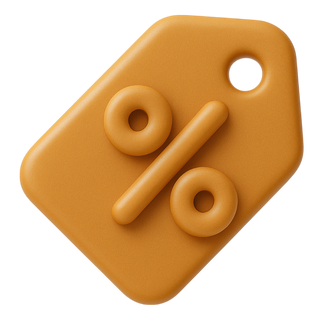Navigating kosher gift-giving doesn't have to be complicated. Whether you're building business relationships, celebrating a special occasion, or simply showing appreciation to Jewish friends, colleagues, or clients who observe kosher dietary laws, this guide will help you choose gifts that are both appropriate and appreciated.
Understanding the Basics
Kosher isn't just a style of food – it's a set of dietary guidelines that many Jewish people follow. At its simplest, kosher means food that complies with traditional Jewish dietary laws. When sending gifts to someone who keeps kosher, the most important thing to remember is that they'll be looking for reliable kosher certification on any food items.
Don't worry about memorizing all the rules. Instead, focus on finding items with recognized kosher symbols from reliable certifications like OU, OK, Star-K, or cRc. For a comprehensive list of acceptable kosher certification agencies, you can reference the CRC's guide at https://consumer.crckosher.org/acceptable-kashrus-agencies/.
Foolproof Gift Options
When in doubt, these gifts are almost always welcome:
- Fruit baskets from certified kosher providers ensure that the preparation meets kosher standards.
- Kosher wine makes an excellent gift for many occasions. Just be sure it specifically says "kosher" on the label – regular wine doesn't qualify.
- Gourmet kosher chocolates and confections from specialty providers offer sophisticated options that everyone loves. Many premium chocolate companies offer kosher-certified selections.
- Gift cards to restaurants with kosher certification or to mainstream retailers (where the recipient can choose their own items) eliminate any concerns about kosher status.
- Non-food gifts like books, tech accessories, or quality office items bypass kosher considerations entirely while still showing thoughtfulness.
Holiday-Specific Options
Jewish holidays offer perfect gifting opportunities, but each has its own traditions:
- Rosh Hashanah (Jewish New Year) favors sweet foods like honey, apples, and round challah bread.
- Chanukah is celebrated with gifts for eight nights, with chocolate coins (gelt) being traditional.
- Purim involves giving food gifts called "mishloach manot," typically containing at least two different ready-to-eat foods.
- Passover has the strictest dietary rules of the year – stick to items specifically labeled "Kosher for Passover" during this holiday.
- Shavuos traditionally features dairy treats like cheesecake and cheese platters.
Navigating Dietary Preferences
Beyond kosher certification, consider other dietary preferences:
- Meat and dairy combinations are never kosher, so avoid gifts that mix these (like cheese and salami).
- Pareve items (neither meat nor dairy) are the most versatile kosher gifts, as they can be eaten with any meal.
Presentation and Timing
Showing respect for Jewish traditions goes beyond the gift itself:
- For Sabbath observers, gifts should arrive before Friday evening or after Saturday night.
- During Jewish holidays, many observant people don't handle money or use electronics, so time deliveries accordingly.
- Include kosher certification information when giving food gifts so the recipient can easily verify the status.
When in Doubt
If you're uncertain about what's appropriate:
- Choose a non-food gift that avoids all kosher considerations.
- Opt for gifts from specialty kosher providers who understand all the requirements.
Remember, the most important thing about gift-giving across cultures is the thought and respect behind it. Making an effort to honor someone's religious practices shows consideration that will be genuinely appreciated.
Simplified Shopping Solution
For those looking to navigate kosher gifting with confidence, Giftsmiths offers a specialized marketplace focused exclusively on kosher gifts. Our curated selection ensures that every food item meets proper kosher standards, taking the guesswork out of cross-cultural gifting and allowing you to focus on choosing something your recipient will truly enjoy.







